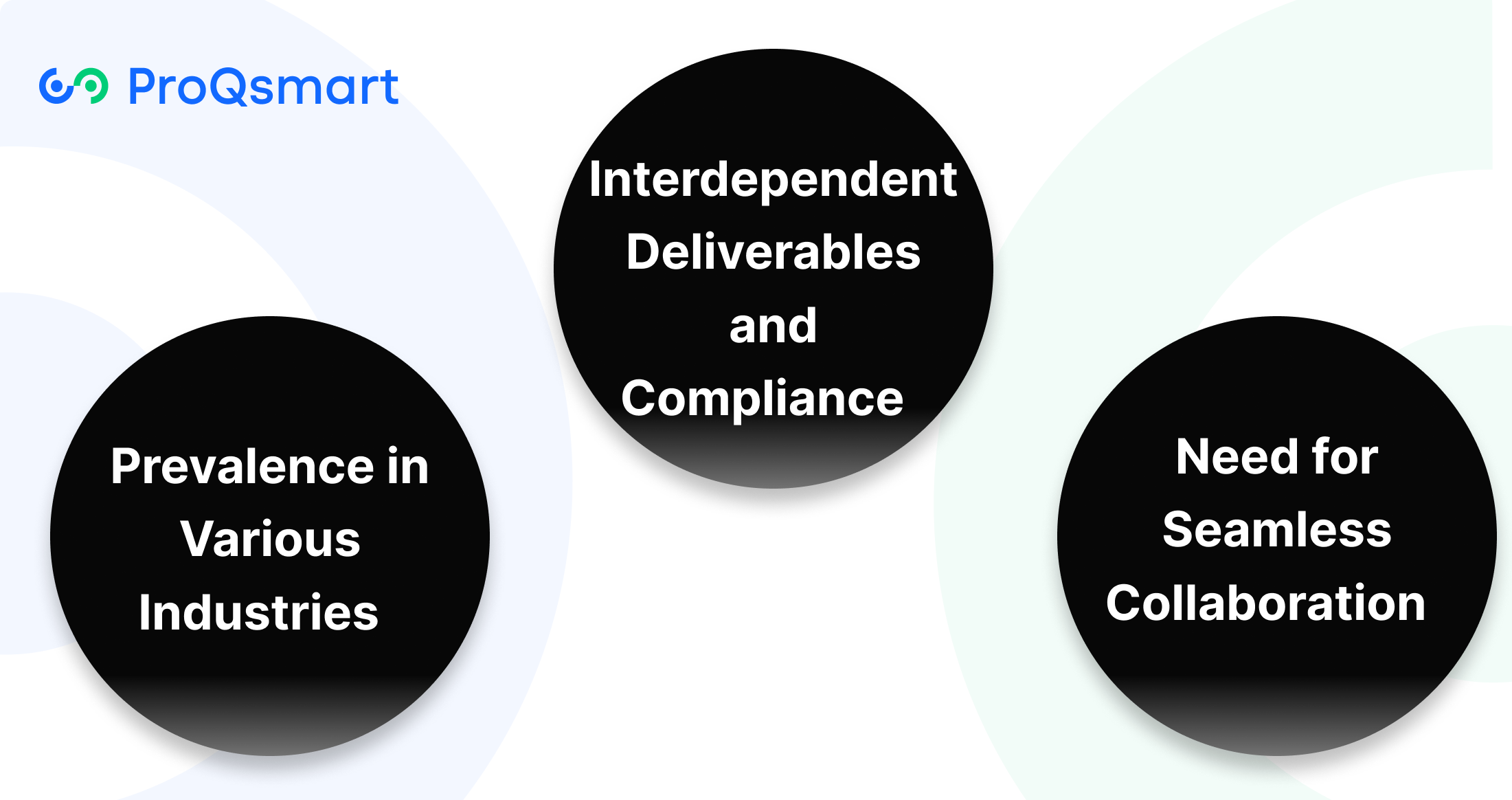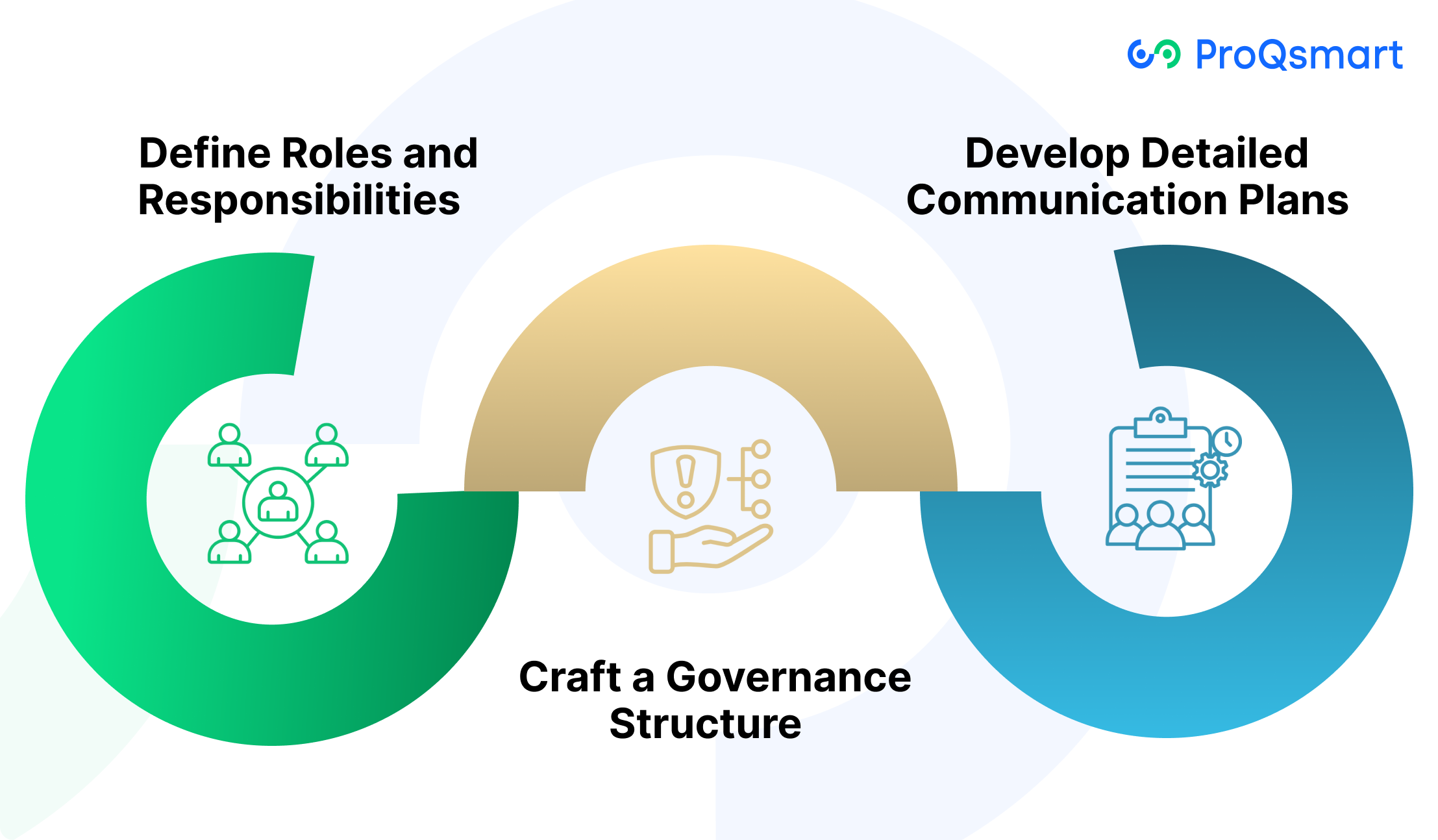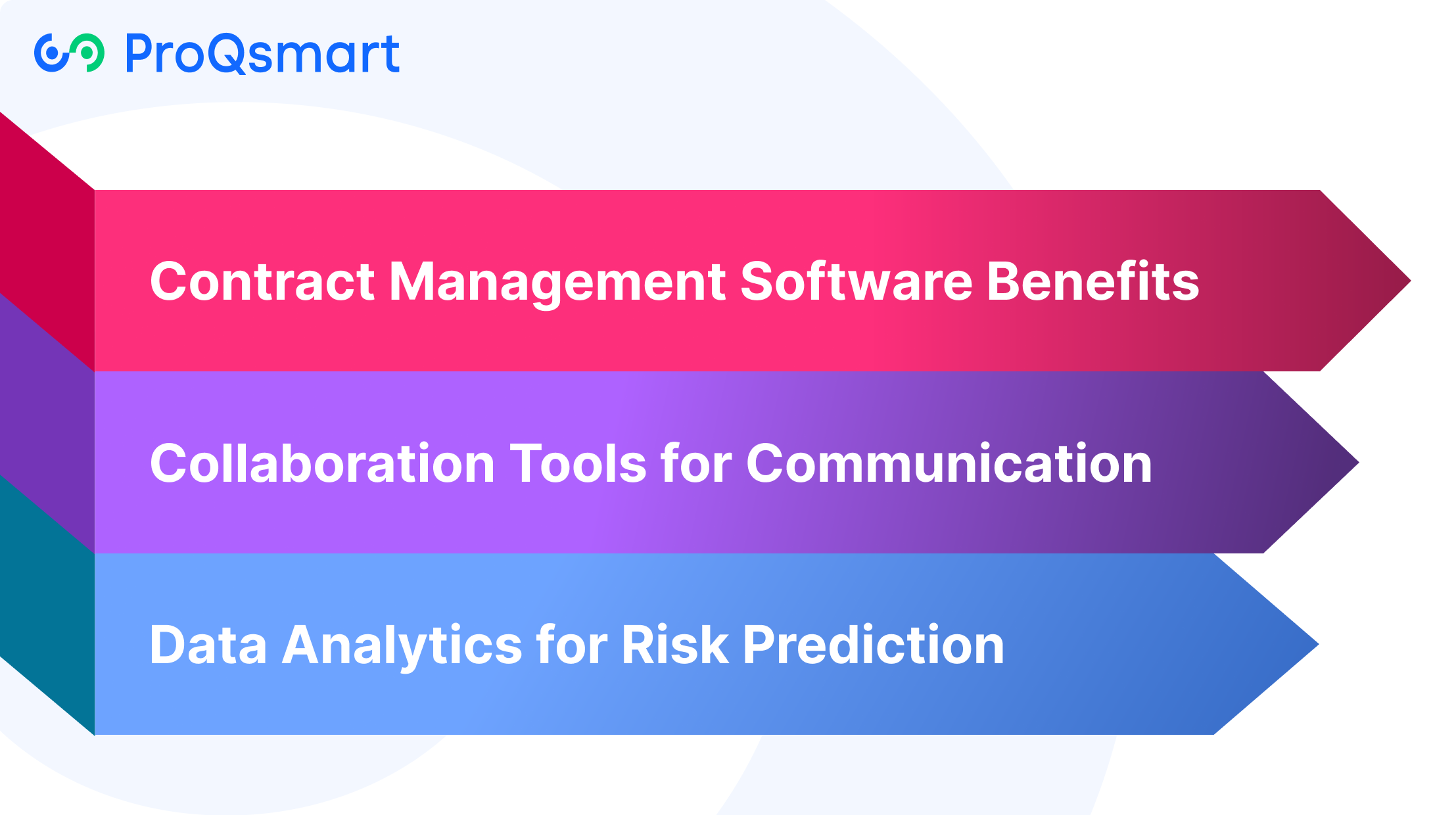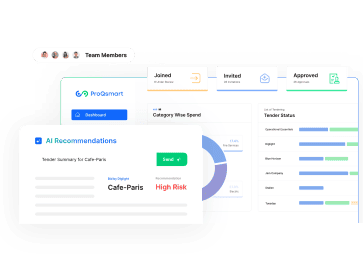Contract management involves overseeing and managing contracts throughout their lifecycle, ensuring that all terms are met while minimizing risks and maximizing value for all parties involved.
It underpins all of procurement and supply chain’s operations and impacts. It simplifies vendor relations, makes regulatory compliance easier, and promotes fiscal responsibility through efficiency.
Proper contract management enhances relationships with vendors and protects businesses from future legal and financial disasters. A smarter way to work contract management is the foundation for operational excellence.
It includes writing unambiguous contracts, tracking compliance, and keeping proper documentation.
Multi-Party Contract Management Complexities

This increase in multi-party contracts is a response to the increasing interdependence of enterprises and parties in all industries. These agreements, involving multiple entities, are increasingly prevalent in sectors like construction, where general contractors, subcontractors, and suppliers coordinate on vast projects. In manufacturing, intricate supply chains demand precise collaboration.
These multi-party contracts have a profound impact on both project delivery timelines and budget adherence and even stakeholder relationships. As industries shift toward integrated operations, multi-party contracting trends emphasize agility and strategic alignment. This shift drives businesses to adapt their processes for improved outcomes.
Prevalence in Various Industries
Multi-party contracts are particularly prevalent in the construction and manufacturing industries, both of which are characterized by large-scale projects and interdependent deliverables. Take, for example, the construction industry, where balancing subcontractor obligations with supplier commitments helps projects remain on track with schedules and budgets.
These contracts are similarly found in fields like technology and healthcare, where collaborations frequently include vendors, service providers, and oversight authorities. Failing to properly manage these contracts can lead to completion delays and project cost overruns. It can also exacerbate compliance challenges, underscoring the need for robust tools and strategies.
Interdependent Deliverables and Compliance
The successful execution of multi-party contracts quickly devolves into the complexity of where to focus your attention when managing interdependent deliverables. Effective tracking of compliance across all parties not only fosters accountability but reduces the risk of missed deadlines or subpar quality.
Advanced tools such as CLM software make this much easier by providing compliance monitoring and automating workflows. ProQsmart helps you build better supplier relationships and meet regulatory requirements. It automates key processes like subcontractor management and supplier performance tracking, automating much of the execution of contracts.
Need for Seamless Collaboration
Through collaboration, parties can overcome complexities and ensure contracts achieve desired outcomes despite their complicated nature. Tools like ProQsmart work to solve those issues of communication, providing options like real-time updates and shared workspaces to increase visibility and streamline processes.
Through automating workflows and driving clear communication, ProQsmart encourages collaboration and keeps everyone on the same page to avoid miscommunication and misunderstanding among stakeholders. Collaborative strategy and smart technology together reduce redundancies and make contracts perform better.
Establishing a Strong Contract Foundation

A strong contract foundation is critical for successful performance, including maximizing outcomes from execution, mitigating risks and disputes, and fostering collaborative partnerships. By focusing on key elements like role clarity, robust governance, and communication plans, businesses can build frameworks that withstand complexities.
In fact, studies have demonstrated that ineffective contract management can waste companies more than 9% of their annual revenue. It is clear that improving contracting capacity is more important than ever in today’s everchanging environment.
Define Roles and Responsibilities
Key roles in contract management include:
-
Contract Managers: Oversee contract lifecycle and compliance.
-
Legal Teams: Ensure terms meet regulatory standards.
-
Stakeholders: Align contracts with organizational goals.
When each party’s obligations, expected deliverables, and associated timelines are clearly documented, ownership of tasks is reinforced. An accountability framework can help clarify responsibilities and accountabilities, making sure everyone knows the plan.
With contract management software like ProQsmart, tasks can be automated to send real-time notifications to keep all parties and all stakeholders up to speed.
Craft a Governance Structure
A strong governance structure includes a steering and operational committee. While steering committees provide strategic oversight, operational committees address the tactics for day-to-day execution. Properly defined escalation protocols are at the core of successful dispute resolution, preventing costly delays.
Governance is further supported through integration with solutions such as ProQsmart, which automate workflows and track supplier compliance/notificationsso contract management happens effortlessly.
Develop Detailed Communication Plans
Developed communication protocols guide educated conversations and provide transparency. Creating clear escalation hierarchies cuts through issues quickly and a collaborative platform brings people together.
For example, when CLM tools are integrated with ERPs to provide a holistic view, it allows organizations to coordinate efforts across teams. With ProQsmart’s collaborative, real-time capabilities, updating can be easier than ever, keeping your contract on track for successful execution.
Post-Signing Management Strategies
Post-signature contract management is essential to ensuring that signatories reap the maximum potential value of their agreements. Despite the challenges, obtaining a signature is still a significant achievement. Without sustained oversight and strategic post-signing management of contracts, compliance, performance and cost-effectiveness may not be realized.
Failing to take this step can be an expensive oversight for companies. Without it, they risk running into invoicing errors, not fulfilling service-level agreements, and losing out on beneficial discounts. Organizations that adopt a holistic and forward-looking approach to post-signature management and monitoring can minimize many risks. This means continuing to pay close attention to legal compliance, performance monitoring, and smart commercial operations.
Performance Monitoring with KPIs
Key performance indicators (KPIs) are vital for measuring contract outcomes. Defining KPIs tied to service levels, deliverables, and costs helps in gauging vendor performance accurately. Conducting regular audits ensures these metrics remain aligned with organizational goals.
Leveraging tools like ProQsmart enhances this process by automating supplier performance monitoring, offering clear insights into contract adherence. For instance, the platform’s visual tracking features simplify vendor evaluations and highlight areas needing improvement. Organizations integrating such solutions often discover unrealized credits or discounts, directly boosting profitability.
Change Management Processes
Contracts are dynamic and change is usual, thus comprehensive change management is critical. Good systems will allow for easy tracking of amendments, ensuring version control, and quickly communicating updates to relevant stakeholders.
Digital platforms, such as ProQsmart, dramatically simplify these efforts by automating changes and creating transparency. Automating the tracking of change orders eliminates the risk of missing them. This maximizes operational efficiencies and counteracts the 8.6% value loss in contract value that most companies face due to contract erosion.
Compliance Oversight and Audits
The ability to navigate legal frameworks is crucial for organizations. Regular compliance audits are necessary to maintain compliance with constantly evolving legal and regulatory requirements. These training sessions improve stakeholder understanding of protocols, keeping everyone safer and mitigating risk.
A well-designed compliance framework, using tools including ProQsmart, centralizes contract data. This comprehensive methodology improves transparency and accountability, protects the integrity of their workflows, and avoids expensive mistakes.
Leverage Technology for Contract Management

Embracing technology in contract management has revolutionized the way organizations manage contracts, leading to streamlined processes and enhanced precision. By reducing manual data entry and centralizing information, technology helps reduce the risk of error and improve transparency.
AI and machine learning (ML) technologies are provoking a paradigm shift in processes across industries. They pull out key data, spot essential obligations, and anticipate risks, which enables proactive management approaches.
Contract Management Software Benefits
Good contract management software is designed to efficiently deliver features that go beyond the basics, like secure document storage, compliance tracking, and automated workflows. Centralized platforms create alignment and transparency, providing clear and efficient access for stakeholders to important data, lowering confusion and miscommunication.
Automation takes away unnecessary, manual processes such as expiration contract renewals, increasing efficiency and reducing human error. To illustrate, cloud-based systems provide real-time notifications, keeping everyone on the same page.
ProQsmart takes it a step further by automating your workflows, keeping you compliant, and building your relationships with suppliers.
Collaboration Tools for Communication
Strong collaboration tools improve real-time communication and file sharing among multiple stakeholders, eliminating bottlenecks and allowing faster, more informed decision-making. Platforms that facilitate the resolution of issues quickly foster a culture of collaborative problem-solving, eliminating negotiation bottlenecks.
For example, ProQsmart empowers bid collaboration by allowing for efficient e-tendering and management of subs to ensure teams can work together effortlessly toward common objectives.
Data Analytics for Risk Prediction
Data analytics pinpoints risks and predicts potential delays through the analysis of past trends. Predictive analytics can indicate where to allocate resources, preventing costly substandard contract performance.
By leveraging AI, ProQsmart delivers automated, predictive insights, influencing more informed decisions and more effectively minimizing risk.
Building Strong Relationships
Building strong relationships in contract management is key to collaboration, reducing risk, and working toward common objectives. Utilize technology, from contract management software solutions to AI-driven stakeholder engagement platforms, to help streamline your contract management processes. This successful contract management builds trust between all stakeholders, sets the stage for enduring achievement, and creates a spirit of partnership.
Foster Trust Through Transparency
Accountability Trust starts with open communication and transparency. Whether it is sharing supplier delivery data, compliance dashboard metrics, or other performance data, it is important to keep everyone in the loop and involved.
This way of working eliminates unnecessary miscommunications and allows for unambiguous expectation setting. Platforms such as ProQsmart, which offer transparency and real-time contract data access, are critical to this process.
By consolidating all contracts and monitoring key obligations, organizations can foster accountability from all parties involved and establish a future rooted in trustworthiness.
They have to deal with less quitting because data-driven insights prevent concerns before they turn into issues.
Promote Collaborative Problem-Solving
When it comes to overcoming challenges, collaboration is essential. Working on problems together prevents finger pointing and builds a collaborative and constructive working relationship.
For example, if there’s a billing dispute in a medical services agreement, working through the issues with good faith negotiations is going to lead to mutually beneficial resolution. Real-time collaboration on ProQsmart’s platform makes this even easier by allowing professionals across trades to troubleshoot together, keeping work flowing without a hitch.
Well-developed relationships reduce conflicts, improve problem solving, and push people to be more creative when obstacles arise.
Recognize Contributions of All Parties
Recognizing stakeholders’ contributions fosters good will and encourages collaboration. Celebrating milestones — like meeting 100 out of 100 compliance measures or delivering the first few deliveries — uplifts everyone’s spirits.
ProQsmart’s supplier performance monitoring toolsallow for easy tracking of accomplishments and can help give a nod to those who contributed just in time. For instance, if a supplier is always on time, they should be recognized for it, which promotes the right behavior and cultivates long-term allegiance.
Best Practices for Multi-Party Contracts
Engaging with multi-party contracts requires more than just a contract management system or a simple contract repository. To drive successful contract management, businesses must focus on being consistent, planning proactively, and integrating digital contract management tools to simplify the entire contract management process.
Standardization Across Agreements
Contract standardization is a key ingredient to effective contract management in any context. By standardizing templates for common clauses like deliverables, penalties, and dispute resolution, you can create consistency among agreements.
In addition to decreasing ambiguities, these templates provide a basis for increased compliance with regulatory and organizational standards. For instance, the implementation of a clause library makes contract-building more straightforward, often saving staff hours and lowering administrative costs by 30% or more.
Consistent language and terms across contracts foster better understanding among stakeholders, minimizing misinterpretations and disputes.
Scenario Planning for Potential Risks
Being proactive when anticipating risks is especially important with multi-party contracts. Planning for contingencies lets you plan for and tackle challenges that may arise, like supplier delays or changing market conditions.
By identifying scenarios that would impede contract performance, you can work proactively to develop risk mitigation strategies. Automated risk analysis tools improve monitoring by flagging potential risks before they become a problem.
This new efficiency nets a remarkable 80% time saved in contracting. Companies taking advantage of AI-infused redlining can work together on revisions 75% quicker, keeping contracts flexible enough to accommodate adjustments that may arise from unexpected developments.
Integration with Existing Systems
Complete integration of contract management tools with current business systems is key to making daily operations run smoothly. Integrated solutions, such as ProQsmart, automate workflow processes, keep track of supplier performance, and improve transparency.
For instance, ProQsmart makes it easier to manage subcontractors and source capital expenditures to make procurement more responsive to current budgets. Such integration reduces delays, accelerates approvals, and ensures legal compliance, helping businesses save costs.
Conclusion
Tackling complex, multi-party contracts requires precision, clarity, and the right tools to ensure success. Establishing a strong foundation during contract creation is essential, but maintaining a proactive approach post-signing is equally critical. Monitoring milestones, identifying discrepancies early, and fostering open communication among stakeholders are key strategies for effective contract management. Leveraging advanced technology further streamlines these processes, increasing efficiency, reducing errors, and saving valuable time.
These measures go beyond risk avoidance—they focus on delivering value and fostering collaborative relationships that drive long-term success. By implementing best practices and adopting innovative solutions, organizations can confidently manage even the most intricate agreements while enhancing operational performance and financial outcomes.
Explore ProQsmart’s advanced contract management solutions—book a demo today to discover how AI-driven tools can simplify multi-party contract management and deliver measurable results.




